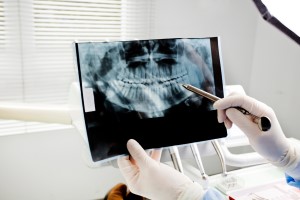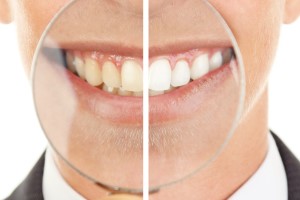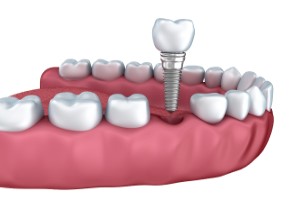When Should I See an Orthodontist?

Wondering if you should see an orthodontist? There are a few indicators that tell a person that it is time to see an orthodontist. However, most of the time, a general or family dentist will recommend that the person sees one based on their own examinations or evaluations. In this article, we highlight when it is time to see an orthodontist. If you’re unsure, then you may find this article to be helpful.
When to see an orthodontist
An orthodontist is a dental specialist who focuses solely on diagnosing, preventing and treating teeth that are uneven or jaws that are malpositioned. They undergo the same training that a general dentist does but they take additional time to study orthodontics.
Below, we outline when to see an orthodontist. It is likely that a general dentist will recommend or refer you to a general dentist when they notice any abnormalities or problems within a person’s mouth. But it is also good to be aware of when an orthodontist is necessary to see.
Crooked teeth
The number one reason why people need to see an orthodontist is if they have crooked teeth. In most situations, the general or family dentist will refer their patient to an orthodontist when they notice teeth that aren’t straight.
Having crooked teeth isn’t just a dent in one’s confidence, it can also cause significant oral health problems. Teeth that aren’t straight may be more prone to food getting stuck, which over time can cause a bacteria buildup. A build up in bacteria can then lead to infections which could result in tooth decay or gum disease.
Crooked teeth may be harder to clean with a toothbrush or even floss. Day to day, there may be areas that are hard to reach due to teeth that are in front of or behind the adjacent ones. Over time, this could lead to poor oral hygiene which could, again, result in gum disease or tooth decay.
An uneven bite
Another indicator that a visit to the orthodontist is necessary is if a person has an uneven bite. This could be an overbite or an underbite. An uneven bite may not seem like that big of a deal but it can actually pose a threat to one’s oral and dental health too.
An uneven bite may cause problems with chewing which could result in worn teeth. If a person is constantly working harder to chew naturally, their teeth may decay over time. And, an over and underbite may also cause the teeth to rub up against one another, when they should not. Bruxism is more likely to occur when a person has an uneven bite.
Contact us today
Knowing when to visit an orthodontist can be helpful for someone who isn’t sure whether or not they need treatment. If you have questions about seeing an orthodontist then reach out to our office today. We can help you! Our orthodontists can evaluate your teeth and determine whether or not treatment is needed. Give us a call or stop by today.
Request an appointment here: https://jacksonheightdental.com or call 82nd St. Dental at (718) 476-5555 for an appointment in our Jackson Heights office.
Check out what others are saying about our services on Yelp: Read our Yelp reviews.
Recent Posts
Dental bonding is one of the most versatile and minimally invasive restorative and cosmetic dental procedures. Dental bonding is the go-to procedure for many patients looking to fix imperfections or enhance their smile, from enhancing the appearance and shape of teeth to repairing damaged enamel. Whether you are new to cosmetic dentistry or considering touch-ups…
A dental bridge is a reliable, effective solution for tooth loss, as it offers functional and aesthetic benefits. This dental restoration helps improve chewing, speech, and overall oral health while maintaining the smile’s natural structure. Patients interested in bridges as tooth replacements can benefit from learning more about their basics, placement process, and long-term care…
A damaged or decayed tooth can affect your confidence and overall oral health. Fortunately, a same day crown can help restore your smile in a single dental visit. This efficient and innovative restoration allows you to improve your teeth without the lengthy process associated with traditional crowns.Same day crowns are custom-designed dental restorations prepared and…
All-on-4 dental implants can effectively restore a complete smile, offering a permanent and natural-looking alternative to traditional dentures. Many patients who have lost most or all of their teeth can qualify for this procedure, as it mainly requires good general and oral health. Learning about the basics of the All-on-4 procedure, its benefits, and eligibility…






